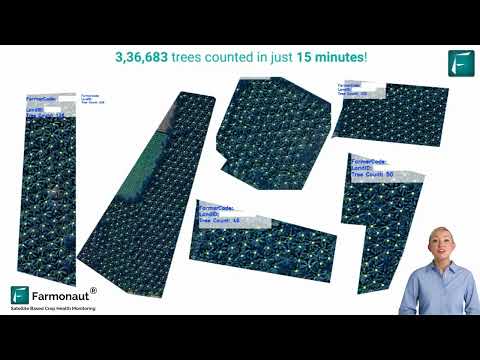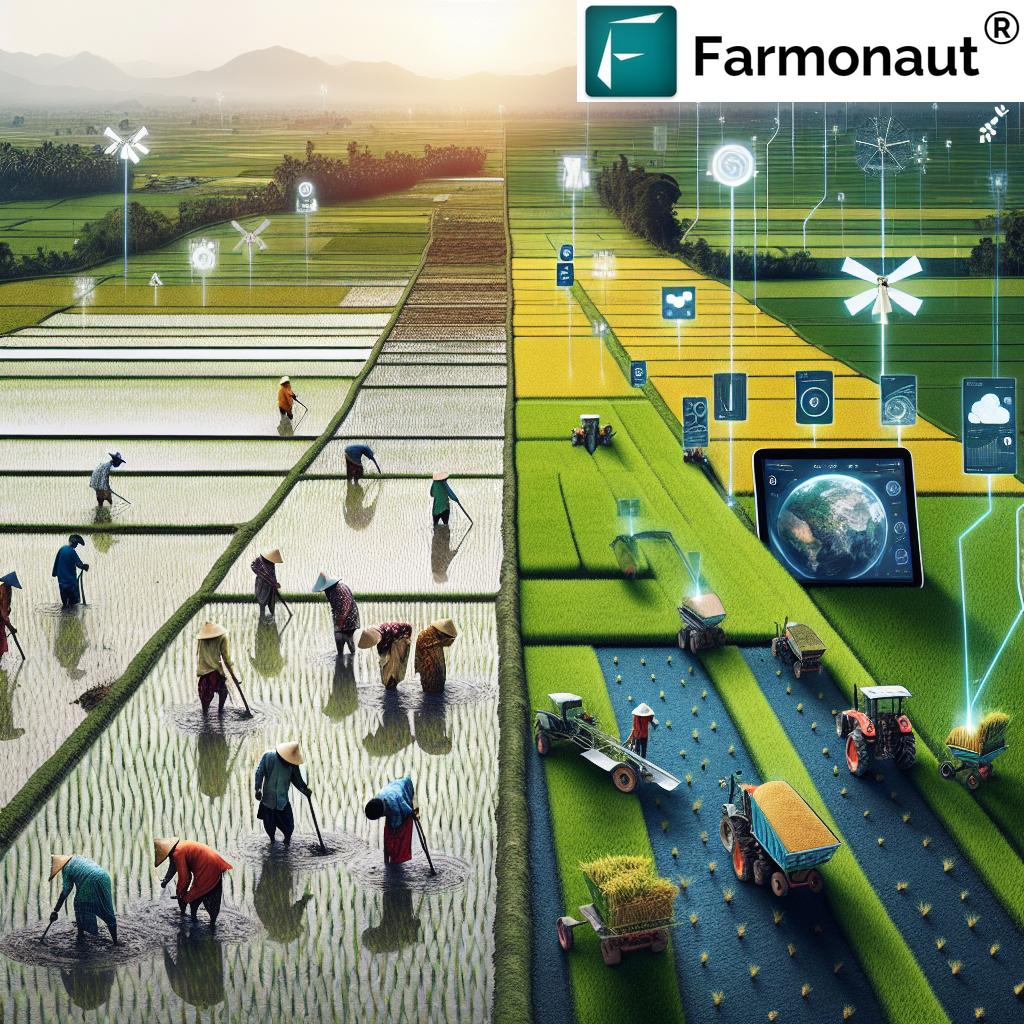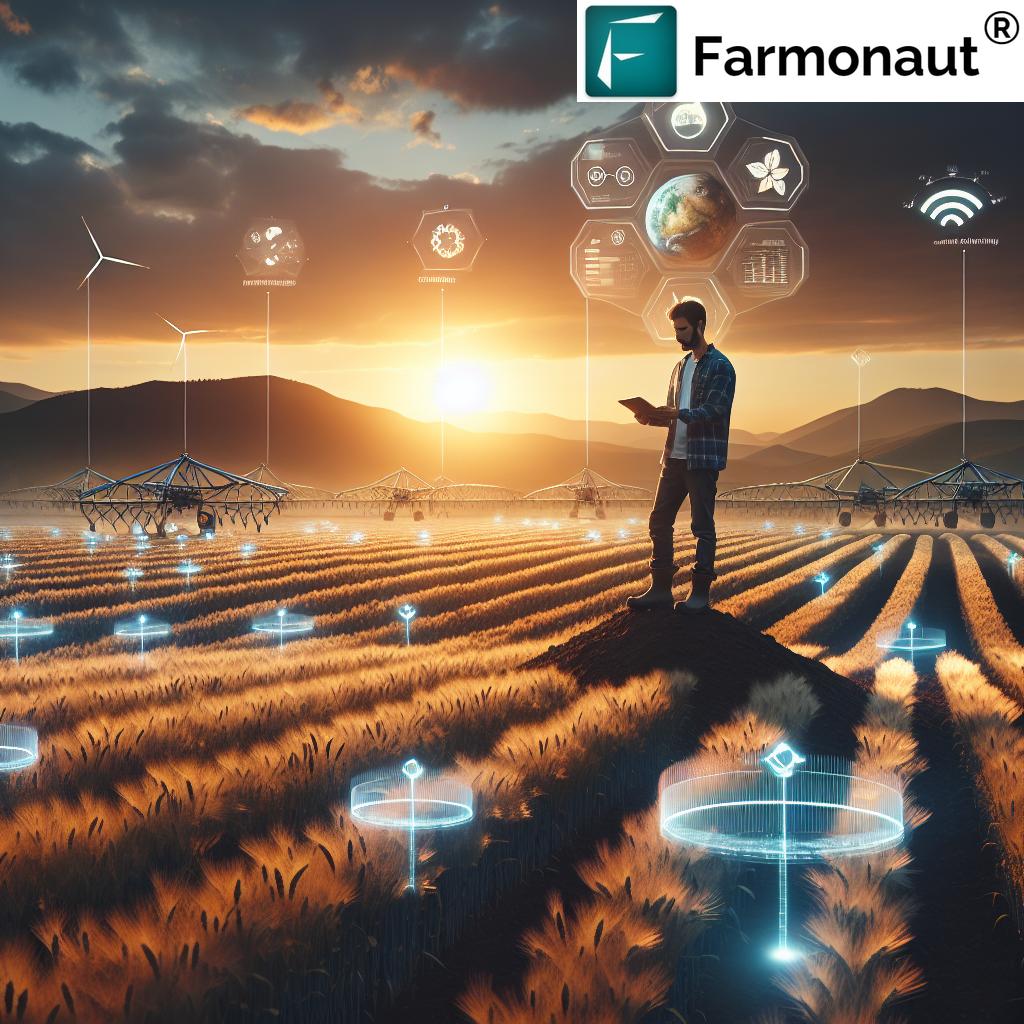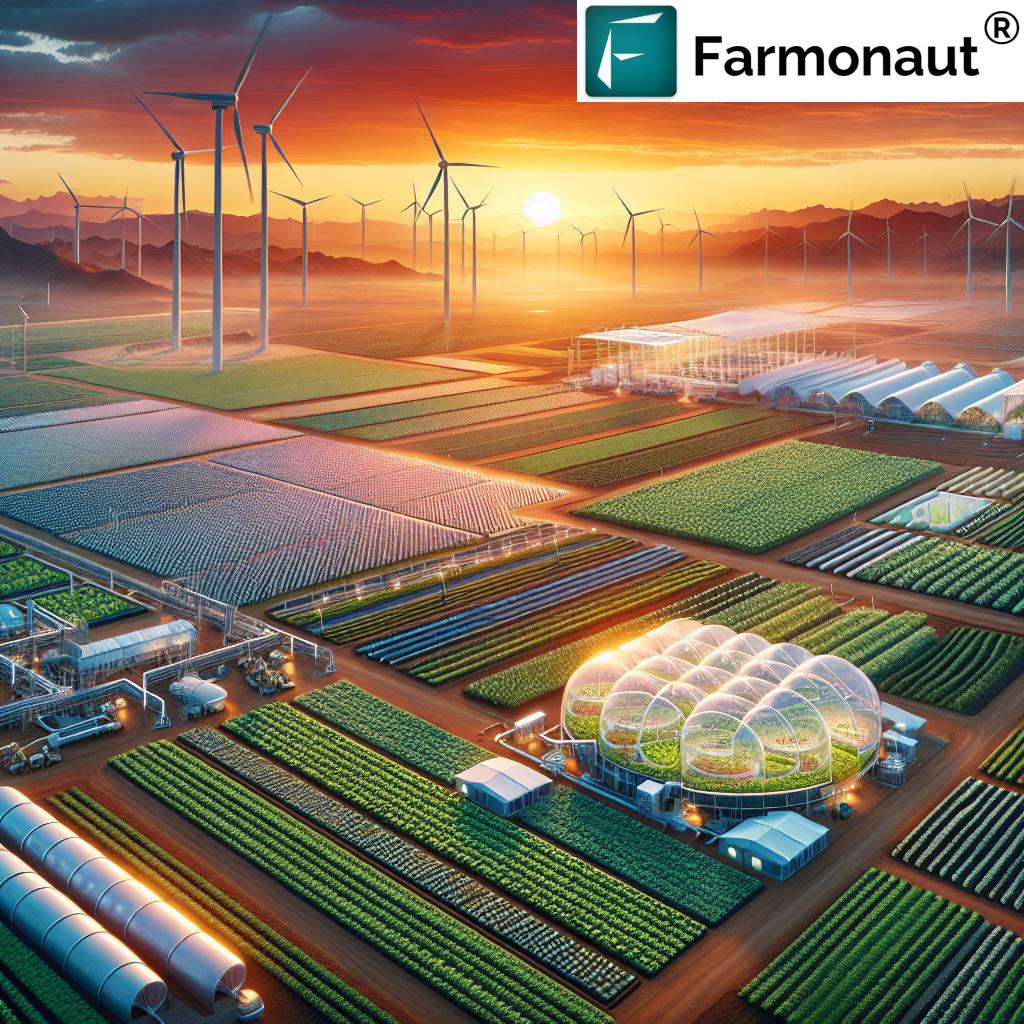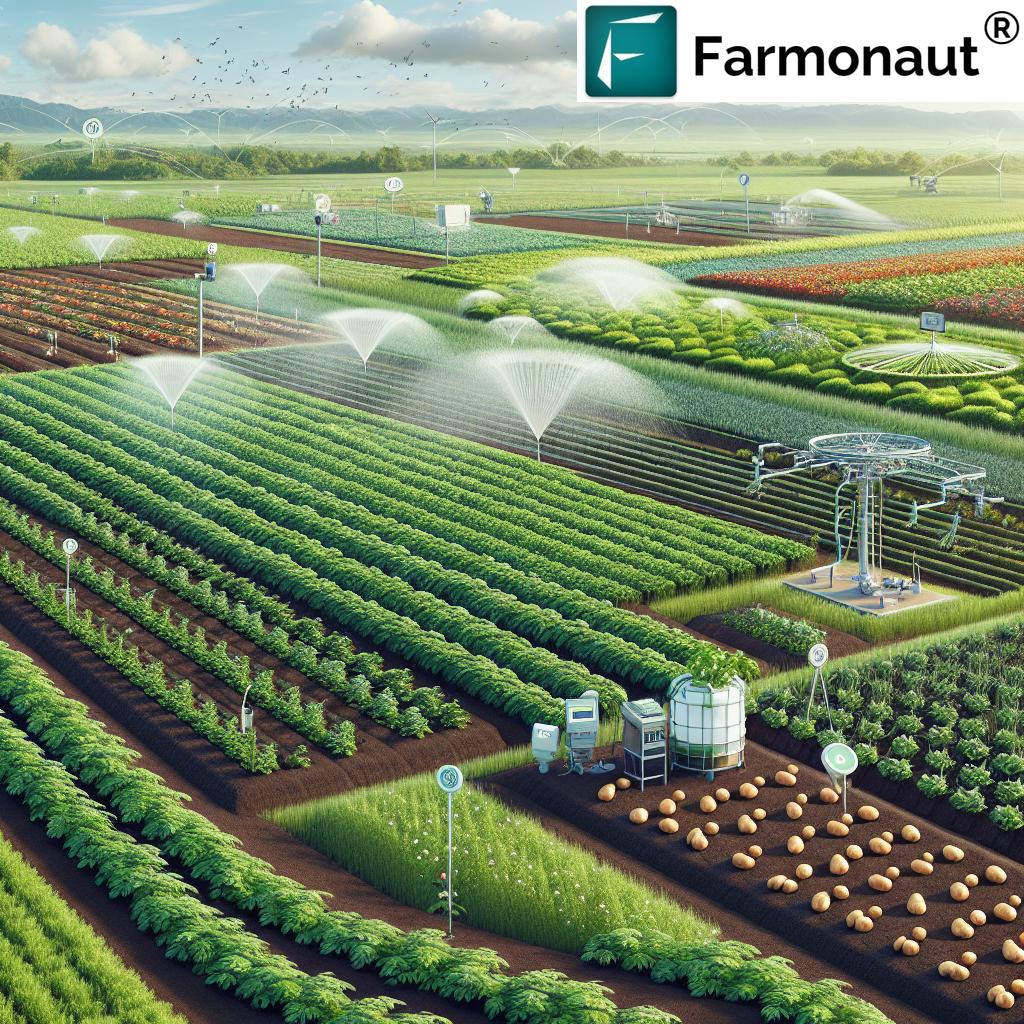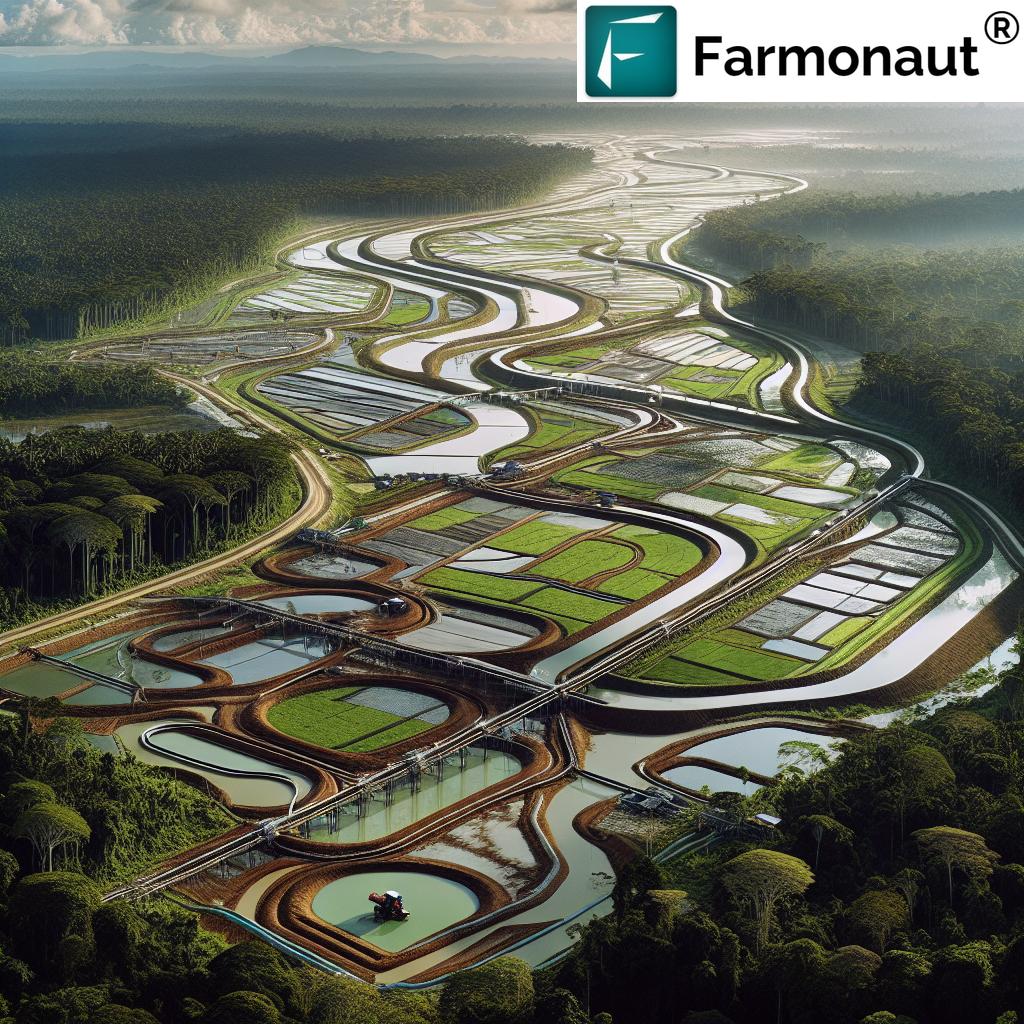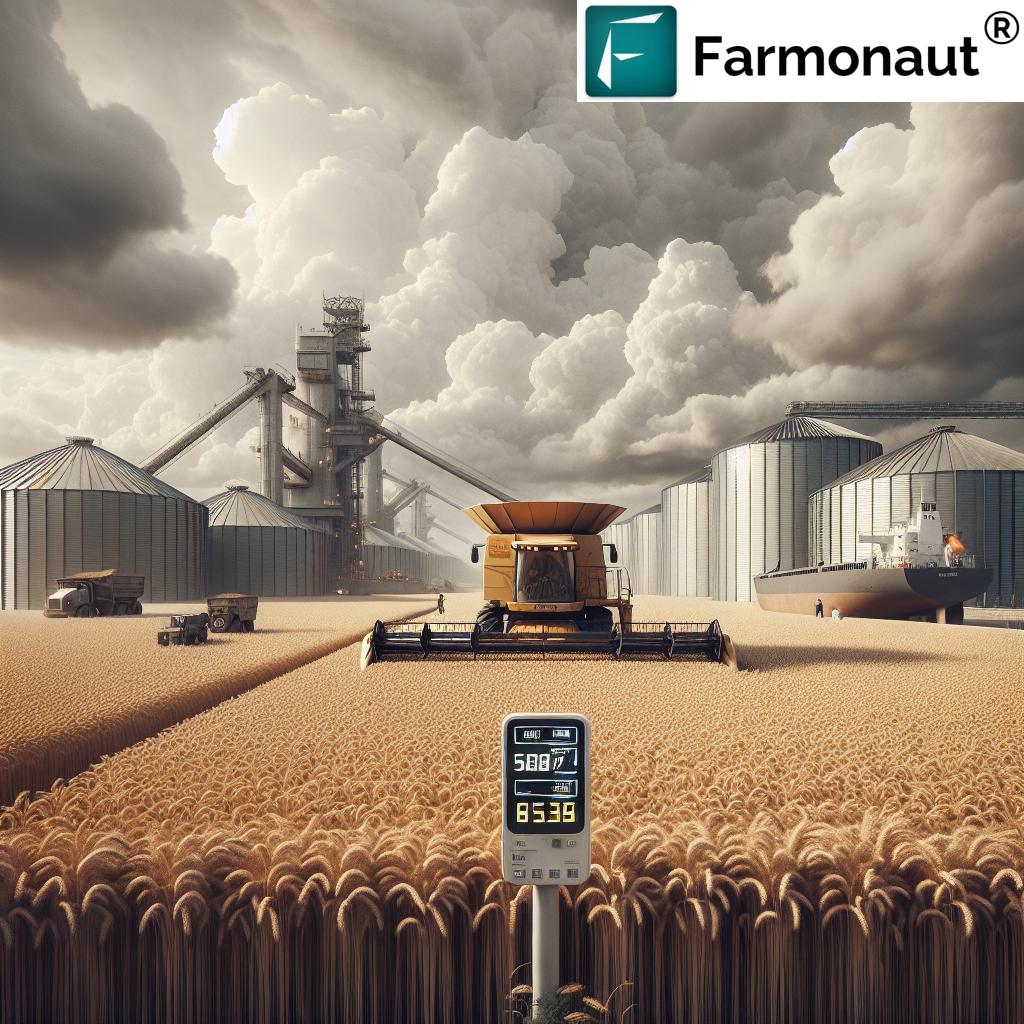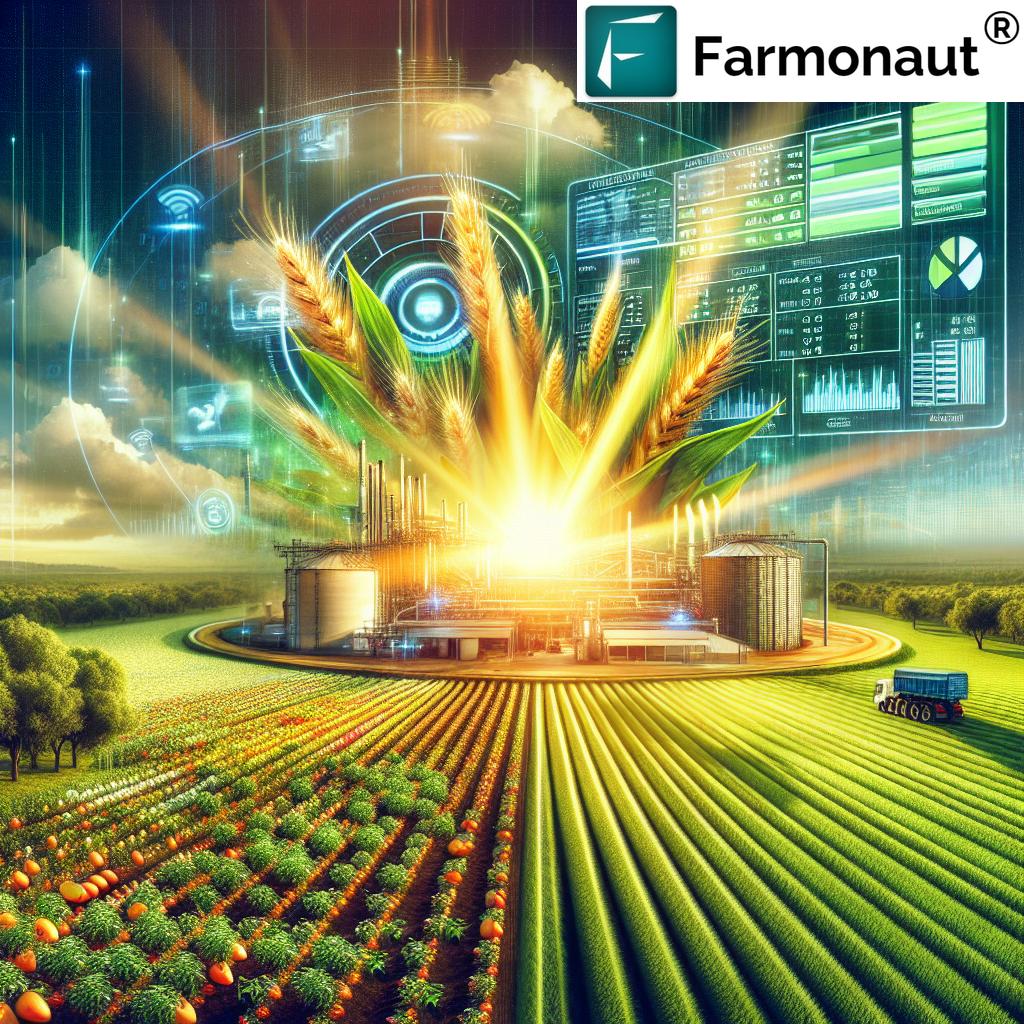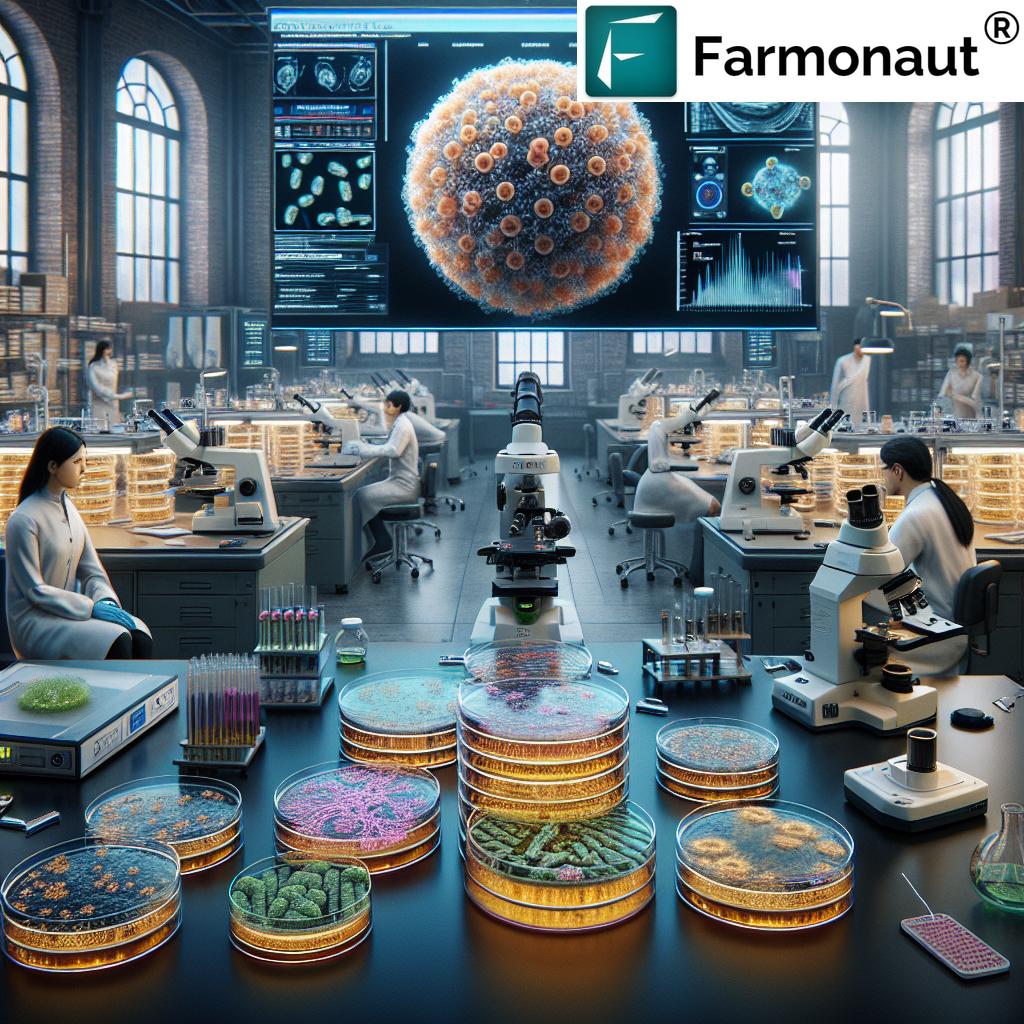Revolutionizing UAE Agriculture: How AI and Farmonaut’s Tech Drive Sustainable Farming Innovation at COP29
“AI-powered farm management systems analyze decades of research data to help smallholders adapt to volatile weather patterns.”
As we delve into the groundbreaking developments unveiled at COP29 in Baku, Azerbaijan, we find ourselves at the forefront of a technological revolution in agriculture. The United Arab Emirates (UAE) has taken center stage, showcasing its commitment to leveraging artificial intelligence (AI) and innovative technologies to transform farming practices and address global climate challenges. In this comprehensive exploration, we’ll uncover how these advancements are shaping the future of sustainable agriculture in the UAE and beyond.
The Dawn of AI in UAE Agriculture
At the heart of the UAE’s agricultural innovation is the introduction of a pioneering ChatGPT tool tailored specifically for farmers. This AI-powered system, aptly named “CHAG” (Chat + Ag), represents a significant leap forward in agricultural technology. By harnessing over 50 years of research data, CHAG aims to provide farmers with actionable insights that can revolutionize their approach to crop management and decision-making.
Mariam bint Mohammed Saeed Hareb Almheiri, Head of the International Affairs Office in the UAE Presidential Court, unveiled this groundbreaking initiative during a session focused on creating AI-based public goods for over one billion smallholders. The significance of this tool cannot be overstated, as it addresses one of the most pressing challenges faced by farmers worldwide: adapting to increasingly volatile weather patterns.
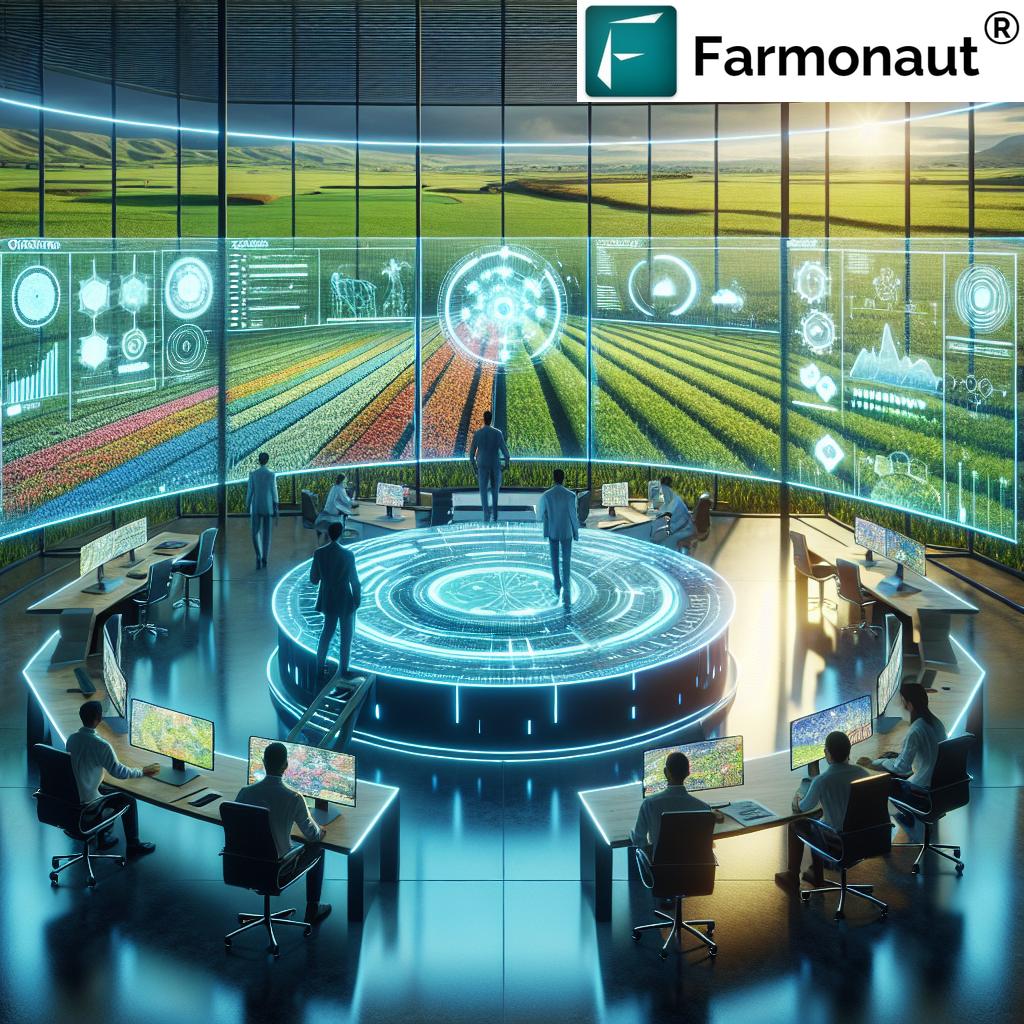
CHAG: Transforming Weather Forecasts into Farmer-Friendly Advice
One of the most impressive features of CHAG is its ability to translate general weather forecasts into specific, actionable guidance for farmers. Celeste Saulo, Secretary-General of the World Meteorological Organization, emphasized that this AI tool goes beyond simply providing weather information. It offers tailored recommendations that enhance farmers’ resilience and decision-making capabilities, particularly when it comes to critical choices about planting and harvesting.
This innovative approach to agricultural AI aligns perfectly with the services offered by companies like Farmonaut, which provides advanced, satellite-based farm management solutions. Through its web app, Farmonaut offers real-time crop health monitoring and AI-based advisory systems that complement the UAE’s efforts to revolutionize farming practices.
Sustainable Practices and Carbon Markets
The UAE’s commitment to sustainable agriculture extends beyond AI-powered tools. At COP29, Sheikha Shamma bint Sultan bin Khalifa Al Nahyan initiated crucial discussions on carbon footprint reduction and the potential of carbon markets as a sustainable finance mechanism. This forward-thinking approach positions the UAE as a leader in establishing carbon market initiatives within the agricultural sector.
Fanny Modin from Seagrass-E.ON recognized the UAE’s proactive stance, highlighting the country’s efforts to establish leadership within the carbon markets sector. This aligns with global efforts to create more sustainable and environmentally friendly agricultural practices.
“Global climate conferences like COP29 are driving sustainable farming innovation, aiming for net-zero emissions by 2050.”
Innovative Technology and Sustainability Goals
The COP29 events showcased a wide array of innovative technologies aimed at achieving climate and development goals. Zayed Sustainability Prize winners shared insights into how startups are advancing sustainability through tech solutions. Notable among these was Sebastian Groh, CEO of SOLShare, who addressed the need for synergies between decentralized and centralized solutions to overcome existing policy challenges.
These discussions highlight the importance of integrating various technological approaches to create comprehensive solutions for sustainable agriculture. Companies like Farmonaut play a crucial role in this ecosystem by offering tools such as their Satellite and Weather API, which enables developers and businesses to incorporate advanced agricultural data into their own systems.
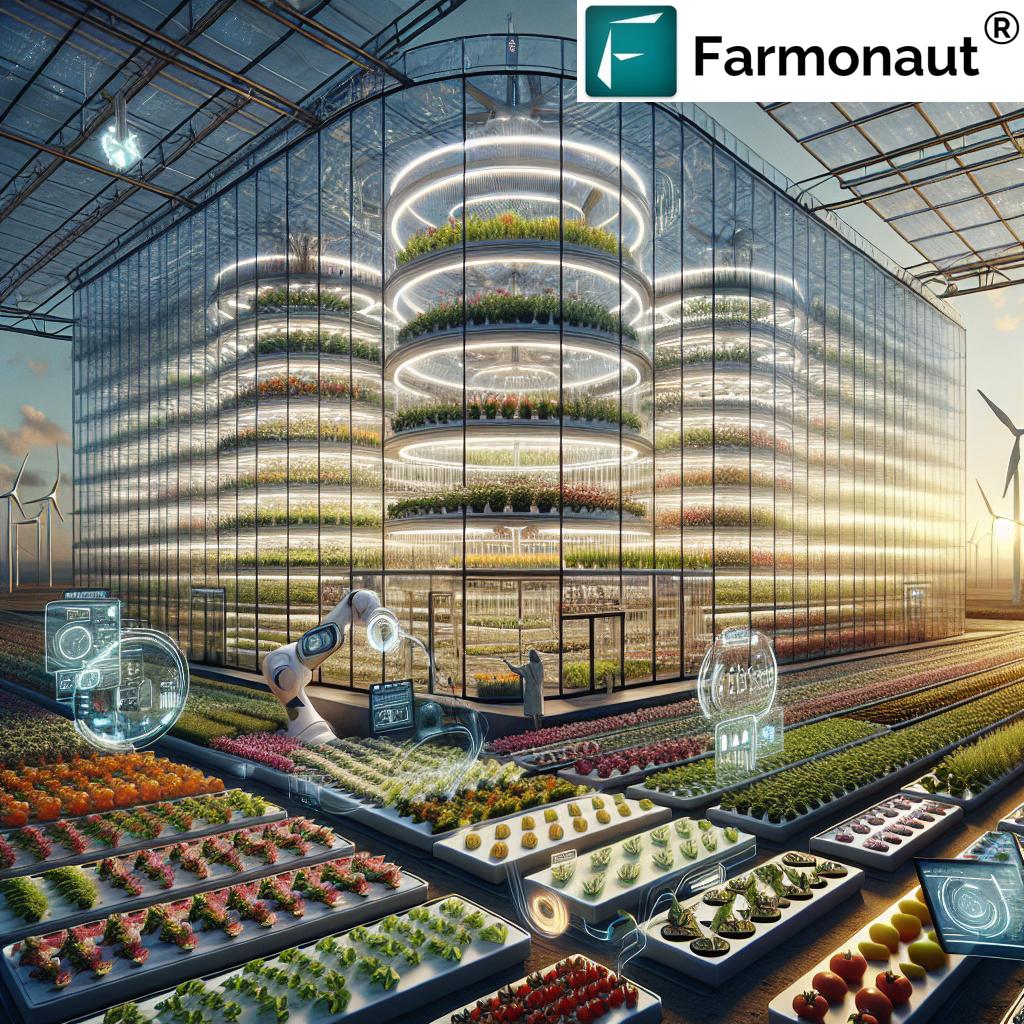
The Role of AI in Energy Transition and Emissions Reduction
A significant focus of the COP29 discussions was the role of AI in accelerating the energy transition and achieving net-zero emissions by 2050. The pursuit of sustainable energy solutions, including hydrogen as a potential aviation fuel, reflects a broader commitment to innovative approaches in reducing the carbon footprint of various industries, including agriculture.
Nadia Rouchdy, Head of Climate at Emirates Nature-WWF, emphasized the importance of time and reliable data in the decarbonization process. She also acknowledged the contributions of local companies using AI to tackle emissions and enhance engagement with suppliers on climate-related efforts.
AI, Food Systems, and Agricultural Innovation
The intersection of AI, food systems, and agricultural innovation was a hot topic at COP29. Discussions covered how AI can be leveraged to optimize food production, reduce waste, and enhance supply chain efficiency. These conversations align perfectly with the services offered by companies like Farmonaut, which provides AI-driven insights for precision agriculture.
Through its Android app and iOS app, Farmonaut offers farmers access to advanced agricultural technology right at their fingertips. These tools enable farmers to make data-driven decisions that can significantly improve crop yields while minimizing resource use.
Global Power Grids and Net-Zero Emissions
Advancements in global power grids for achieving net-zero emissions by 2050 were also discussed at COP29. The integration of renewable energy sources and smart grid technologies plays a crucial role in reducing the carbon footprint of agriculture. By transitioning to cleaner energy sources, farms can significantly decrease their environmental impact while potentially reducing operational costs.
This transition aligns with the broader goals of sustainable agriculture and demonstrates how technological innovations in various sectors can contribute to more environmentally friendly farming practices.
Collaboration and Data-Driven Solutions
A key takeaway from COP29 was the importance of collaboration and data-driven solutions in forging a sustainable future for agriculture. The conference highlighted how partnerships between governments, private sector companies, and research institutions can accelerate the development and implementation of innovative agricultural technologies.
Companies like Farmonaut exemplify this collaborative approach by offering their API Developer Docs, which allow for seamless integration of their advanced agricultural data into various systems and applications. This open approach to data sharing and collaboration is crucial for driving forward the agricultural revolution.
AI-Driven Agricultural Innovations at COP29
| Innovation | Technology Used | Potential Benefits | Estimated Impact Score (1-10) |
|---|---|---|---|
| ChatGPT for Agriculture (CHAG) | AI, Natural Language Processing | Personalized farming advice, improved decision-making | 9 |
| Precision Farming Tools | IoT, AI, Satellite Imaging | Optimized resource use, increased crop yields | 8 |
| Carbon Market Solutions | Blockchain, AI | Sustainable finance, reduced carbon footprint | 7 |
| Sustainable Energy Systems | Renewable Energy, Smart Grids | Reduced emissions, lower operational costs | 8 |
The Future of UAE Agriculture
As we look to the future, it’s clear that the UAE is positioning itself at the forefront of agricultural innovation. The introduction of AI-powered tools like CHAG, combined with the country’s commitment to sustainable practices and carbon market initiatives, sets a powerful precedent for the future of farming not just in the UAE, but globally.
The integration of advanced technologies, such as those offered by Farmonaut, into everyday farming practices represents a significant step towards more efficient, sustainable, and resilient agricultural systems. As these technologies continue to evolve and become more accessible, we can expect to see transformative changes in how we approach food production and environmental stewardship.
Conclusion: A New Era for UAE Agriculture
The developments showcased at COP29 in Baku, Azerbaijan, mark the beginning of a new era for UAE agriculture. By harnessing the power of AI, embracing sustainable practices, and fostering innovation, the UAE is not only addressing its own agricultural challenges but also contributing to global efforts in combating climate change and ensuring food security.
As we move forward, the collaboration between government initiatives, private sector innovations, and technological advancements will be crucial in realizing the full potential of these transformative technologies. The future of farming in the UAE looks bright, with AI and sustainable practices leading the way towards a more resilient, efficient, and environmentally friendly agricultural sector.
FAQ Section
- What is CHAG, and how does it benefit farmers?
CHAG (Chat + Ag) is an AI-powered ChatGPT tool designed specifically for agriculture. It provides farmers with actionable insights based on decades of research data, helping them make informed decisions about planting and harvesting in the face of volatile weather patterns. - How is the UAE contributing to sustainable agriculture?
The UAE is leading in sustainable agriculture through initiatives like CHAG, promoting carbon markets, and investing in AI and other technologies to optimize farming practices and reduce environmental impact. - What role does AI play in agricultural innovation?
AI plays a crucial role in agricultural innovation by providing data-driven insights, optimizing resource use, improving crop yield predictions, and helping farmers adapt to changing climate conditions. - How can farmers access these new technologies?
Farmers can access new technologies through platforms like Farmonaut, which offers satellite-based farm management solutions via web and mobile apps. Many initiatives are also working to make these technologies more accessible to smallholder farmers. - What are the long-term goals of these agricultural innovations?
The long-term goals include achieving net-zero emissions in agriculture by 2050, enhancing food security, improving farmer livelihoods, and creating more resilient and sustainable food systems globally.
Farmonaut Subscriptions
As we’ve explored the innovative technologies and strategies shaping the future of agriculture in the UAE, it’s clear that solutions like those offered by Farmonaut play a crucial role in this transformation. By providing advanced, satellite-based farm management tools, Farmonaut empowers farmers to make data-driven decisions, optimize their resources, and contribute to more sustainable agricultural practices.
Whether you’re a small-scale farmer looking to improve your crop yields or a large agribusiness aiming to enhance your operational efficiency, Farmonaut’s suite of tools can provide valuable insights and support. We encourage you to explore the various subscription options available and see how Farmonaut can help you be part of the agricultural revolution.
Together, we can build a more sustainable, efficient, and resilient future for agriculture in the UAE and beyond.




